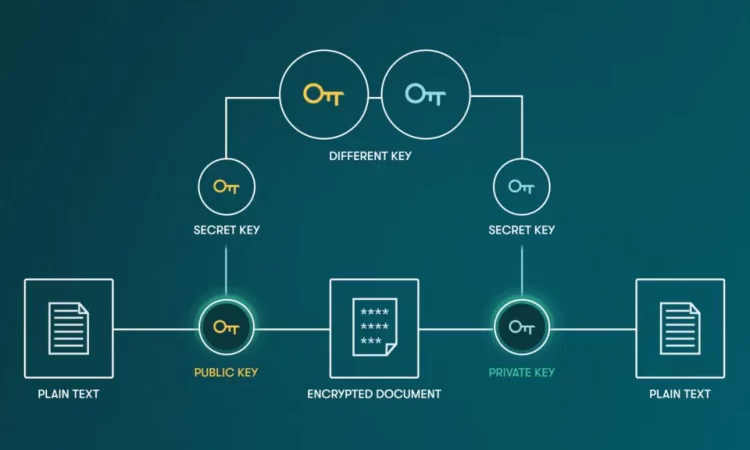
When using free cloud-based apps, our private data may be exposed without proper encryption. End-to-end encryption is essential for keeping your most confidential information secure when taking notes online. This technology encrypts data on your device before syncing it with a cloud service provider. The service itself cannot access the encrypted contents. Only you as the owner decrypt and read the original notes on your authorized devices.
Some popular end-to-end encrypted note-taking services include safenote. These apps make encryption simple and automatic, keeping your most intimate thoughts and ideas private while allowing accessibility across your devices. Mainstream note apps like Google Keep should be avoided, as they data mine and utilize user content for advertising. When choosing a secure note-taking service, look for providers focused on privacy like those mentioned above. In addition to end-to-end encryption, they should offer anonymous signup and analytics/tracking opt-outs.
Once you have an encrypted service established, be sure to configure the privacy settings to maximize confidentiality. Disable link previews, read receipts, usage analytics, and note syncing across unmatched devices. Set sensitive notes to expire after a predefined time for auto-deletion. Give your notes generic unrevealing titles. Routinely change passwords and enable two-factor authentication to prevent account hijacking. For extremely intimate content, consider writing offline and then manually destroying the originals after committing to memory.
With the right habits, your private notes remain locked down even if company servers are hacked. Never store too much personal data in one place. Regularly purge older content and rotate between secure services. Maintain vigilance over your encryption and security settings instead of growing complacent. Review them routinely on a set schedule for necessary upgrades and improvements. Keep privacy as the top priority for your confidential data. For those desiring even more control over private note security, self-hosted open-source options allow managing your encryption keys. Tech-savvy individuals could host Nextcloud on a home server or with a vetted cloud hosting provider. Self-hosting puts you in total control of data encryption and access. However, it does require more effort to maintain.
When writing extremely sensitive content, avoid using real names, dates, locations, or other identifiable details. Get creative using coded language and pseudonyms instead. It provides another layer of obscuring meanings if notes are somehow compromised. Never access private data on public WiFi networks, as they are prone to snooping. Only connect to the internet for syncing notes when on trusted connections secured with VPNs if possible.
Are safenotes taxable? Maintaining online privacy is also about diligence in our habits. Periodically review account settings, update passwords, remove unneeded data, and confirm encryption status across all apps and services. Make this a routine security checklist completed at regular intervals. Assume that with time, any system is compromised in some way. By frequently revisiting protections, you ensure holes do not widen into glaring vulnerabilities.
End-to-end encryption enabled by privacy-focused note apps is essential for keeping your digital information confidential. But technology alone is not enough. Utilizing encryption securely also requires practicing good security habits around passwords, multi-factor authentication, and regular content purging. Take a layered approach combining cutting-edge technologies and vigilant personal practices to truly lock down your private data online. Your notes deserve the highest level of confidentiality.




